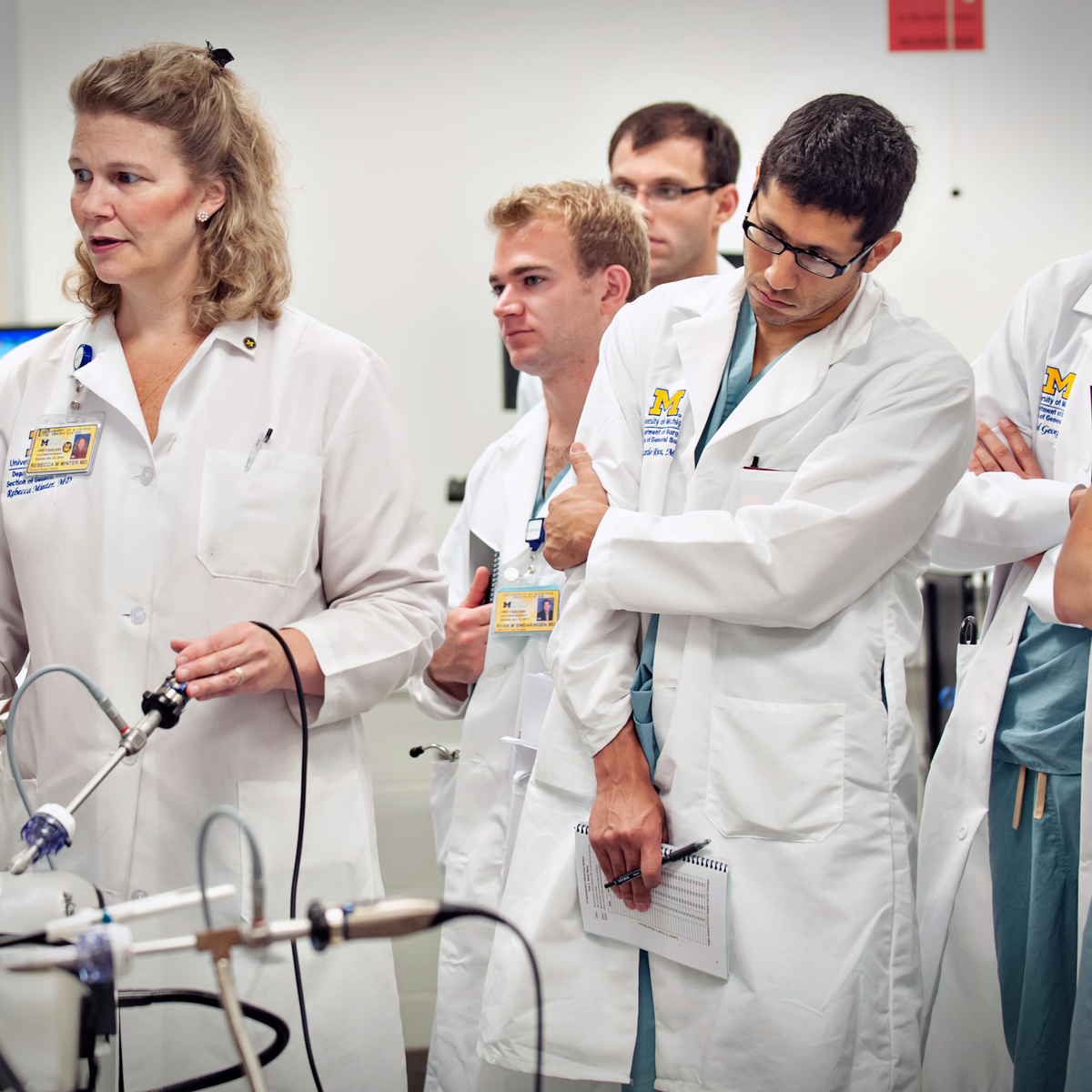Back to Courses









Life Sciences Courses - Page 44
Showing results 431-440 of 644

The Meat We Eat
The Meat We Eat is a course designed to create a more informed consumer about the quality, safety, healthfulness and sustainability of muscle foods and address current issues in animal agriculture in developed and developing countries.

Cannabis, Chronic Pain, and Related Disorders
This Cannabis, Chronic Pain, and Related Disorders course is designed to have you think critically about the health effects of cannabis (i.e., marijuana) in the context of chronic pain, opioid use disorder, obesity, sleep dysfunction and cancer. We'll learn about the epidemiology and etiology of these conditions, the harms/benefits of current treatments, and learn how to evaluate the literature on cannabis for these conditions. We will discuss special considerations for using cannabis for these conditions, such as dose, timing, side effects, and drug interactions. Lastly, we'll discuss how it is being used in the context of palliative care. Obtaining this knowledge will be helpful in terms of informing public policy, public health, and personal decisions regarding the use of cannabis products.

Purpose at Work: A Course for Employees and Leaders
Welcome to Purpose at Work: A Course for Employees and Leaders!
Why purpose at work? Because most of us spend most of our waking hours working. Many of us spend years of effort to obtain jobs that may give us purpose. But can we find purpose in nearly any job? Are we more engaged and likely to remain in our job if it gives us purpose? Can leaders create a culture that makes it easier for people to find purpose in their work? The answers are ‘yes’ to all of the above and this course shows you how.
In this course we first examine what purpose is, the benefits of having a purpose, and how to find your own purpose. We then look at purposeful work, including ways of finding purposeful work in the process of leading a more engaged and fulfilling life. Finally, we focus on purposeful leadership, including ways of leading with purpose and managing yourself. Also, in this course I interview business executives, leading organizational psychologists, and even the research director of NASA. These discussions offer real-world insights and strategies to students, employees, and leaders.

Public Involvement in Research
This course focuses on participatory approaches in research, known as 'public involvement' in the UK. You'll specifically, consider why citizens and patients would be involved in research and explore participatory approaches across and within the research cycle in more detail, diving into questions such as:
- what kinds of participation can be undertaken at each of the 7 stages of the cycle?
- how can you utilise participation in research?
- what examples of using participatory approaches exist in research?
While this course, as with the rest of the specialisation, focuses on public health and ways of involving citizens and patients across and within the research cycle, these concepts apply to other disciplines and kinds of research too. So, you don't have to be a public health specialist or work in healthcare to gain insight from this course.
If you would like to learn more about the theories and core principles of participation within a public health context, we suggest taking Introduction to Participatory Approaches in Public Health. If you're planning a research project and want to include participatory approaches, explore our course Applying Participatory Approaches in Public Health Settings.

Dynamical Modeling Methods for Systems Biology
An introduction to dynamical modeling techniques used in contemporary Systems Biology research.
We take a case-based approach to teach contemporary mathematical modeling
techniques. The course is appropriate for advanced undergraduates and beginning graduate students. Lectures provide biological background and describe the development of both classical mathematical models and more recent representations of biological processes. The course will be useful for students who plan to use experimental techniques as their approach in the laboratory and employ computational modeling as a tool to draw deeper understanding of experiments. The course should also be valuable as an introductory overview for students planning to conduct original research in modeling biological systems.
This course focuses on dynamical modeling techniques used in Systems Biology research. These techniques are based on biological mechanisms, and simulations with these models generate predictions that can subsequently be tested experimentally. These testable predictions frequently provide novel insight into biological processes. The approaches taught here can be grouped into the following categories: 1) ordinary differential equation-based models, 2) partial differential equation-based models, and 3) stochastic models.

Introduction to Human Behavioral Genetics
Behavioral genetic methodologies from twin and adoption studies through DNA analysis will be described and applied to address longstanding questions about the origins of individual differences in behavioral traits.

Faster Together, Enhancing the Recruitment of Minorities in Clinical Trials
This course aims to teach people how to enhance the recruitment of racial and ethnic minorities in clinical trials. Key topics include the importance of diversity in clinical trials, barriers and facilitators to participation in clinical research, community engagement, effective communication, educating about clinical trials, provider outreach, effective prescreening and enrollment, person-centered consent, and retention. Anyone with the potential to recruit can benefit from this course, whether working in a clinical setting or in the community.
The course is split into 8 weeks. You may work at your own pace and finish the course faster, if you would like. We encourage you to take the quizzes to help you learn the material. The course is free to enroll and take. You will be offered the option of purchasing a certificate of completion, which you will receive if you successfully complete the course requirements. This can be an excellent way of staying motivated! Financial aid is also available.
Acknowledgments:
We would like to acknowledge the following members from the Center for Knowledge Management at Vanderbilt University Medical Center for their expertise and ongoing insightful contribution in the development and implementation of the course: Sheila Kusnoor, PhD, Elizabeth Frakes, MSIS, Helen Naylor, MS, Mallory Blasingame, MA, Taneya Koonce, MSLS, MPH, and Nunzia Bettinsoli Giuse, MD, MLS.
We would also like to acknowledge ArtMagic Labs, particularly Casey Culver, John Martinez, and Robert Eva, for their outstanding work in filming and editing the videos for the course.
The Recruitment Innovation Center and members of the Meharry-Vanderbilt Alliance lead the efforts behind the Faster Together project. Together they have led the development of this training.
This work is supported by the National Center for Advancing Translational Sciences, National Institutes of Health, under the award number U24TR001579.
Business Application of Machine Learning and Artificial Intelligence in Healthcare
The future of healthcare is becoming dependent on our ability to integrate Machine Learning and Artificial Intelligence into our organizations. But it is not enough to recognize the opportunities of AI; we as leaders in the healthcare industry have to first determine the best use for these applications ensuring that we focus our investment on solving problems that impact the bottom line.
Throughout these four modules we will examine the use of decision support, journey mapping, predictive analytics, and embedding Machine Learning and Artificial Intelligence into the healthcare industry. By the end of this course you will be able to:
1. Determine the factors involved in decision support that can improve business performance across the provider/payer ecosystem.
2. Identify opportunities for business applications in healthcare by applying journey mapping and pain point analysis in a real world context.
3. Identify differences in methods and techniques in order to appropriately apply to pain points using case studies.
4. Critically assess the opportunities to leverage decision support in adapting to trends in the industry.

Avatar Psychology for Designers
This course covers the latest and greatest psychological research on avatars and is relevant to current and future designers of any medium that includes user self-representations (e.g., video games, virtual worlds, robots, automobiles, social media, etc.). By taking this course, you will be able to define digital and non-digital avatars and identify how they are applicable in everyday life. You will be able to differentiate between the types of relationships people have with their avatars and motivations for using avatars that are more or less similar to the self. The course will help you discern the importance different avatar attributes (e.g., gender, race/ethnicity, attractiveness, personality, humanity, body type, hair, controllability) and avoid common harmful stereotypes in your designs. Finally, you will gain the ability to design avatars that harness their psychological power to influence users toward specific (hopefully non-evil) outcomes, even beyond avatar use.
Dr. Ratan, the instructor of this one-of-a-kind course, is an internationally recognized scholar who actively publishes research on avatar psychology. He is also known for his jovial and engaging lecture style and believes that you learn and produce more when you are having fun. Hope you enjoy the course.

Instructional Methods in Health Professions Education
This course provides those involved in educating members of the health professions an asynchronous, interdisciplinary, and interactive way to obtain, expand, and improve their teaching skills. These skills can then be applied within their own professional context, with a variety of learners, extending across many stages.
After completing this course, learners will:
1. Understand educational theory as it relates to health professions education
2. Match instructional methods with desired educational outcomes
3. Learn a variety of applied teaching techniques
4. Share successful teaching strategies
Suggested resources will include educational videos, individual readings, recommended
reference books, and crowd-sourced recommendations. All students should have
dependable access to the internet with video streaming capabilities. Some students
may want the ability to utilize on-line video conferencing as well.
